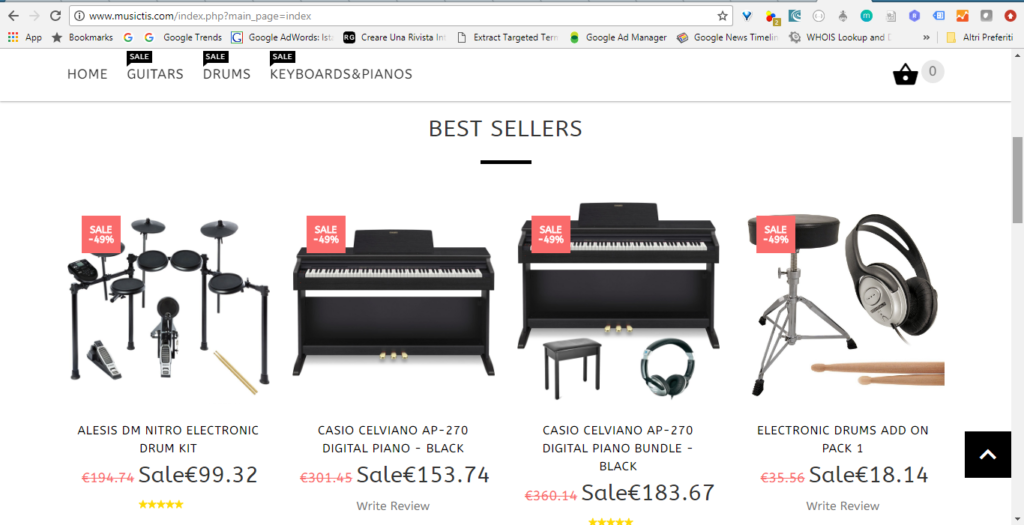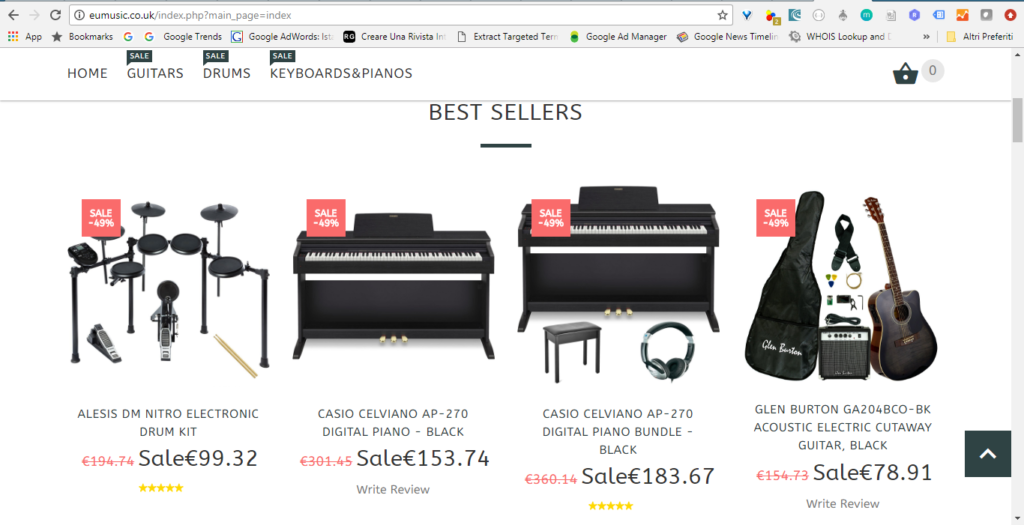A post sponsored on Facebook, musical instruments discounted at 50%, and you, accustomed in the era of Amazon to make fast and easy online purchases, even if you are or consider yourself a network or security expert, risk of falling in the most classic of scams: the sadly famous Neapolitan “parcel”.
Only this time the Neapolitans have nothing to do with it!
We are talking about the umpteenth case of SCAM sites. The typical portrait of a “scam” site is given by some characteristics that are repeated as a sort of consolidated “pattern”.
– Discounted products, often up to 80 or even 90%;
– domains registered only a few days before;
– a certain attention to detail to instil confidence in customers and give authority to the site, boasting a ten-year presence on the market;
– physical addresses that clearly do not correspond to the location of an effective commercial reality, easily verifiable through Google Maps;
– telephone numbers that do not exist or which are answered by automatic telephone answering machines.
All this leads unequivocally to a conclusion … it’s a scam, which is, quite abruptly in recent times, threatening the trust of users in making purchases online, to the detriment of those who do so in an honest and puntal way, and more going to favor multinational big players, which, by their nature, guarantee security and tranquility.
From the experience of some users it can be established that behind these sites can be hidden international criminal organizations, often based in China, since, as in the case of the two sites mentioned, the transactions are diverted to Chinese accounts, but require people physically present in other countries, in particular Great Britain, since in the case of eumusic.co.uk the domain is regularly registered by a so-called Rachel Black (usually the Chinese use to give western names that recall flowers or colors) whose identity is even verified, as can be seen in the Nominet.uk site, provider of the tld domains of Great Britain (https://www.nominet.uk/whois/?query=eumusic.co.uk#whois-results)
They use fake shipping tracking, inside their site (unlike the majority of e-commerce ones that use tracking on the official websites of their carriers), probably to try to reassure users, who can wait weeks or even months before realizing to have been fooled for ordering merchandise that will never arrive.
In the specific case of these two sites is added the shameless resemblance in the site graphics. In reality, it is the same template with small differences in images and logos, powered by ZenCart platform, a popular CMS for e-commerce.
In short, if you are risk-takers, try at your own risk to make a purchase on one of these sites, but if you really can not do without it, make small orders and … do not say that I didn’t warned you!



